Vung Vieng fishing village is within the protected expanse of Bai Tu Long Bay, 20 kilometers northeast of Tuan Chau International Passenger Port, Ha Long city, Quang Ninh province. Vung Vieng has been named one of the 16 most beautiful fishing villages in the world.
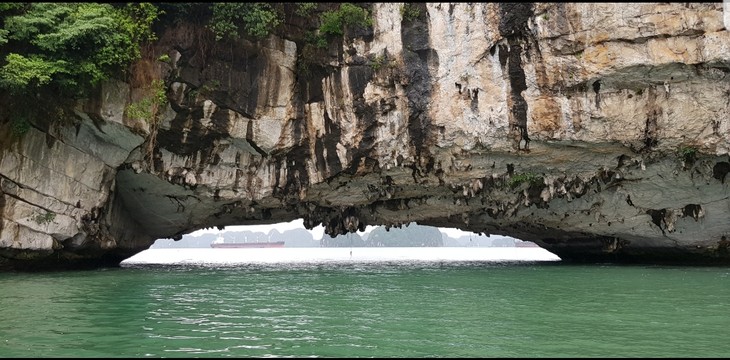
Hang Cao ( Cao Cave) is the gateway to Vung Vieng village (Photo: Ngoc Anh)
Vung Vieng fishing village was founded in the 19th century when fishermen came here to anchor their boats during storms, trade, and do business. In 2014 all 100 households were relocated to the mainland. Now only households engaged in aquaculture are allowed to stay and work in the floating houses.
Tran Van Tan, a Vung Vieng resident, recalled the village founders came by boat to settle here. By day they went fishing and at night they returned to sleep.
“Today the village has 30 households doing aquaculture. They raise garrupa, cobia, grouper, and sea bass and grow pearls. Some households also run a tourism business,” said Tan, adding, “ The Van Chai Tourism Cooperative in Ha Long City has given the villagers jobs earning extra income from tourism. Visitors to the village can hire a boat rowed by a local or rent a kayak and paddle by themselves. Foreign visitors usually prefer taking a kayak to explore the scenic bay.”
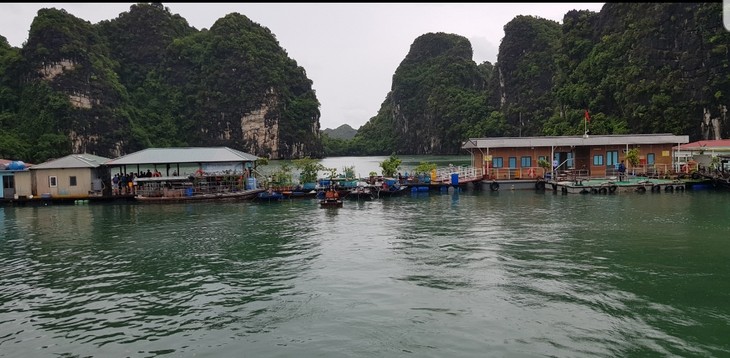
The pier receives visiting tourists (Photo: Ngoc Anh)
The Vung Vieng village gate, known as Cao Cave, is a beautiful natural cave where visitors often stop to take photos, said Vu Van Nam, a local boatman.
According to Nam, “Tourists really like the village gate. It looks like a cave arch and is very cool. The arch is about 50 meters wide, but its height depends on the rise and fall of the water level. At a normal water level, it’s 5 to 6 meters high. When the water level is low, it can be 7 to 8 meters high.”
“In the village, there’s a mountain that looks like 2 people leaning on each other, predictably called Husband and Wife Mountain. It takes 40 to 45 minutes to row around the village. During the peak tourist season in October, a boat makes 4 trips a day, and the boatman earns 4 dollars a trip,” Nam added.
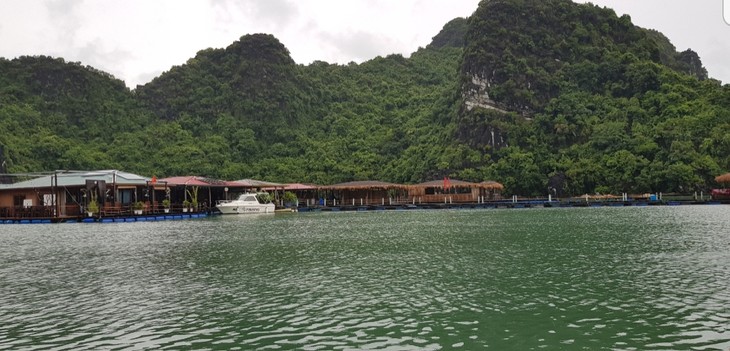
A community raft floats at the center of the village (Photo: Ngoc Anh)
The floating houses of the village are surrounded by mountains. In the middle of the village is a large community raft where the locals used to convene for meetings and conduct classes for their children. Now it’s a museum displaying ceramics and fishing gear.
A local resident named Vu Van Hung said, “The old fishing village is being preserved as a heritage for visitors to explore. Tourists observe the locals raise aquatic products and learn about their daily life and work. The scenery here is beautiful. Vung Vieng Mountain is the highest in Ha Long Bay.”
Hung told that most of the tourists are foreigners, mainly from Europe, North America, and South America, and usually come during the winter.
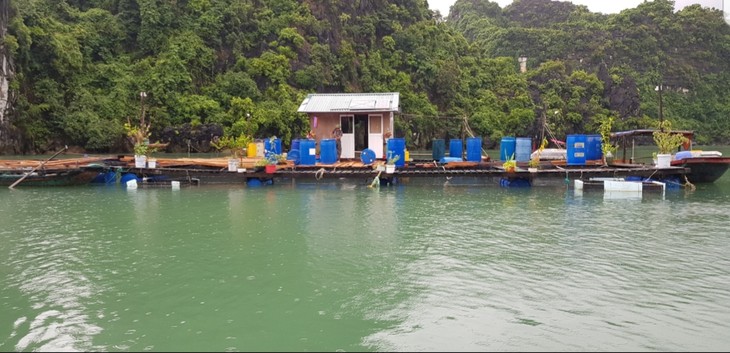
A floating house engaged in aquaculture (Photo: Ngoc Anh)
Vung Vieng village is a tranquil place with few permanent residents where visitors can go kayaking, catch fish, explore the local aquaculture, volunteer for seashore cleanup activities, or just ride around the village in a boat piloted by a local.
Le Hoang Quan, a tourist from Ho Chi Minh City, said, “The scenery is very beautiful, the village is charming, and the villagers are friendly. If I get the chance, I’ll definitely come back to visit Vung Vieng fishing village.”
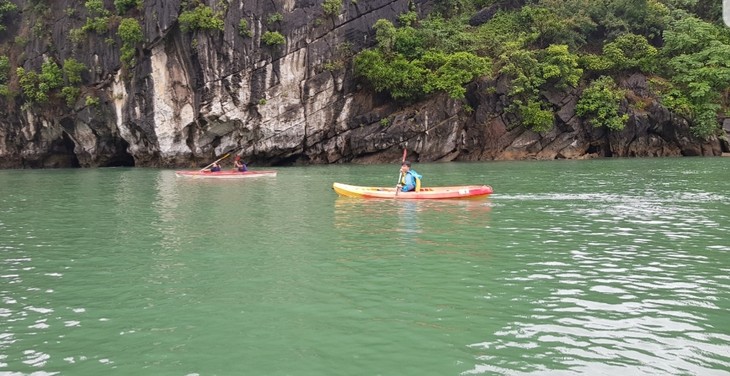
Tourists kayaking around Vung Vieng (Photo: Ngoc Anh)
From afar, the green, red, and yellow of the floating houses shimmers on the water. Vung Vieng fishing village is a top destination for tourists exploring the World Heritage Site of Ha Long Bay.
Ngoc Anh